PLEASE NOTE: The information in this blog is for educational purposes only. It is not a substitute for professional medical advice. Consult your healthcare provider if you’re seeking medical advice, diagnoses, or treatment.
Seed oils are everywhere—lurking in everyday foods and hidden in places you’d never expect, from baby formula to granola bars. However, growing concerns exist about the potential health risks associated with seed oils.
If you’re looking to make healthier choices, you should know which seed oils to watch out for and why. In this post, we’ll explore a list of seed oils to avoid, and their associated health risks and provide practical tips to help you eliminate seed oils and protect your family’s health.
What are Seed Oils?
Seed oils, or “vegetable oils” are extracted from vegetable crops like soybeans, cottonseed, and corn, often through intensive processing. These methods typically involve high heat, chemical solvents, and deodorization to make the oils suitable for consumption.
Seed oils were originally byproducts of manufacturing during the Industrial Revolution. They weren’t initially intended for the dinner table. However, by the mid-1900s, seed oils had become a staple ingredient in packaged foods, reshaping the Western diet in ways that are raising new health concerns today (1). In short, they’re the single biggest change to the US Diet in the last 150 years.
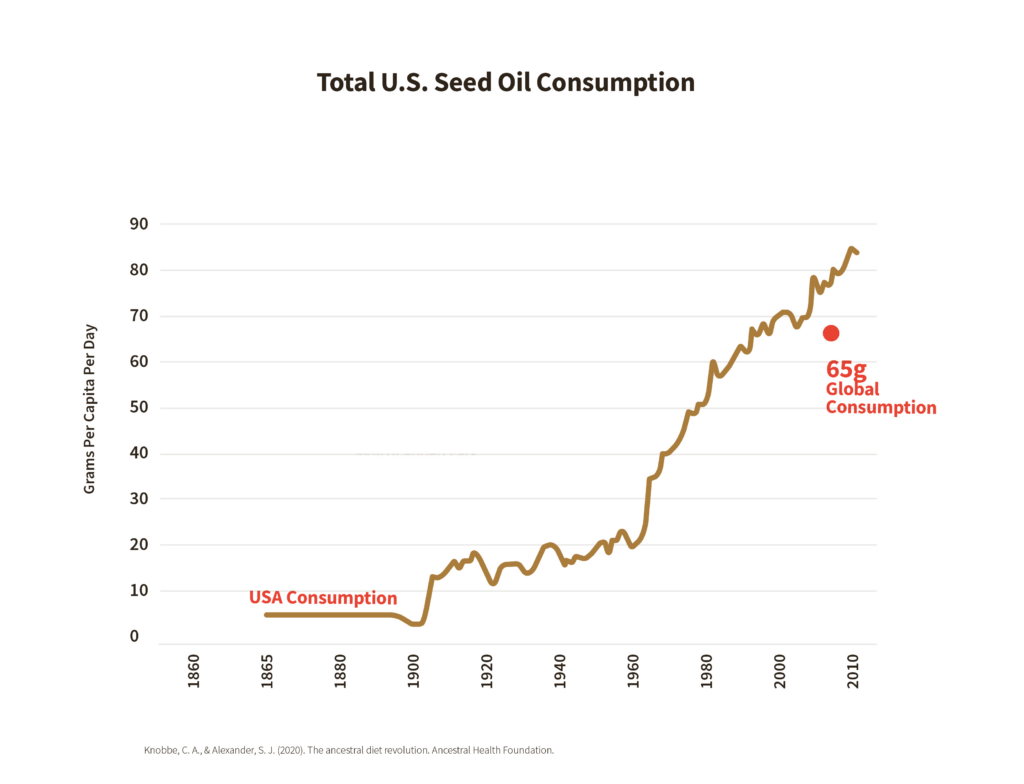
From “The Ancestral Diet Revolution” by Chris Knobbe, MD
Are Seed Oils Toxic?
The food industry favors seed oils for their low cost and so-called “heart-healthy” reputation, but this claim lacks robust scientific backing. Research suggests that seed oils pose significant health risks.
Seed oils are high in polyunsaturated fatty acids (PUFAs), especially linoleic acid, constituting over 50% of most seed oils (2). Linoleic acid can accumulate in the body over time, potentially raising the risk of chronic health conditions (3). Here’s how (4, 5).
- Fat Cell Expansion: Consuming too much linoleic acid causes fat cells to grow beyond their healthy size
- Release of Fatty Acids: These oversized fat cells release excess fatty acids into the bloodstream.
- Triggering of Inflammation: The release of fatty acids triggers inflammation, a natural response to cellular stress.
- Metabolic Disruption: Chronic inflammation can signal insulin resistance, making it difficult for cells to absorb glucose and raising blood sugar levels.
- Increased Risk of Chronic Disease: Prolonged insulin resistance can lead to chronic conditions like diabetes, heart disease, and other serious illnesses (6).
Over the past century, seed oil consumption has skyrocketed, as have rates of chronic diseases (7). Avoiding seed oils is crucial for supporting long-term health and promoting longevity.
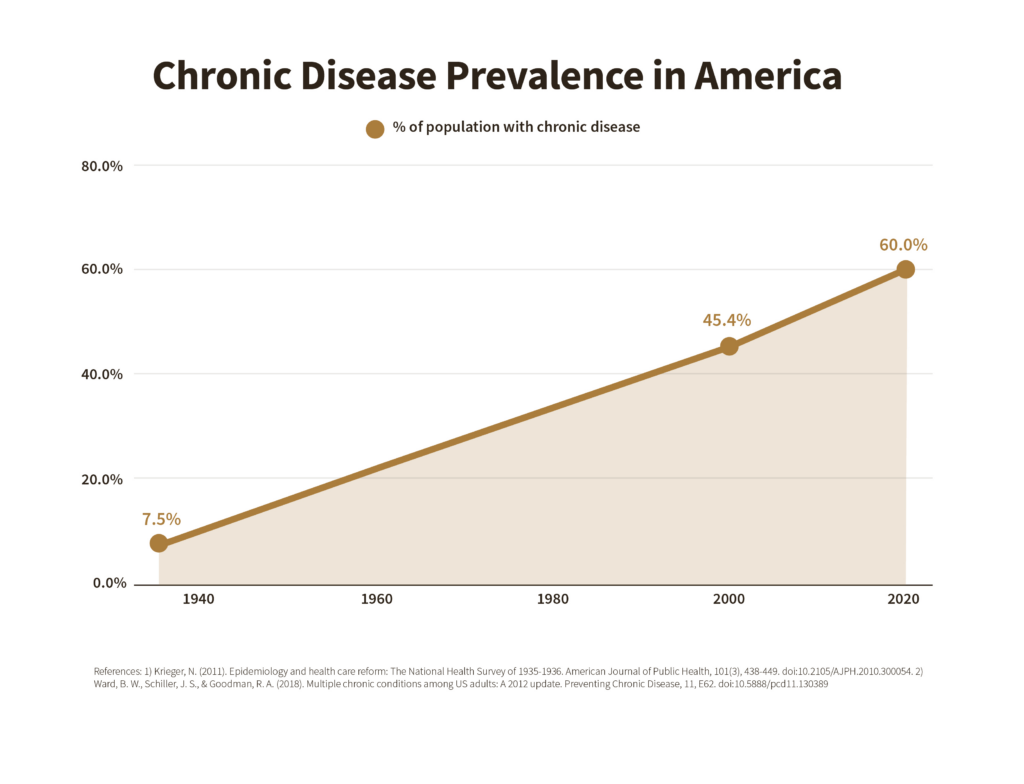
The Comprehensive List of Seed Oils to Avoid
Now that we recognize the link between the increased consumption of seed oils and inflammation, let’s identify the specific types of seed oils to watch out for. They are commonly found in processed foods and even some health products, making it essential to recognize the names of seed oils.
Below is a complete list of seed oils to avoid, organized alphabetically:
- Canola oil
- Corn oil
- Cottonseed oil
- Flaxseed oil
- Grapeseed oil
- Hemp seed oil
- Rice bran oil
- Safflower oil
- Sesame oil
- Soybean oil
- Sunflower oil
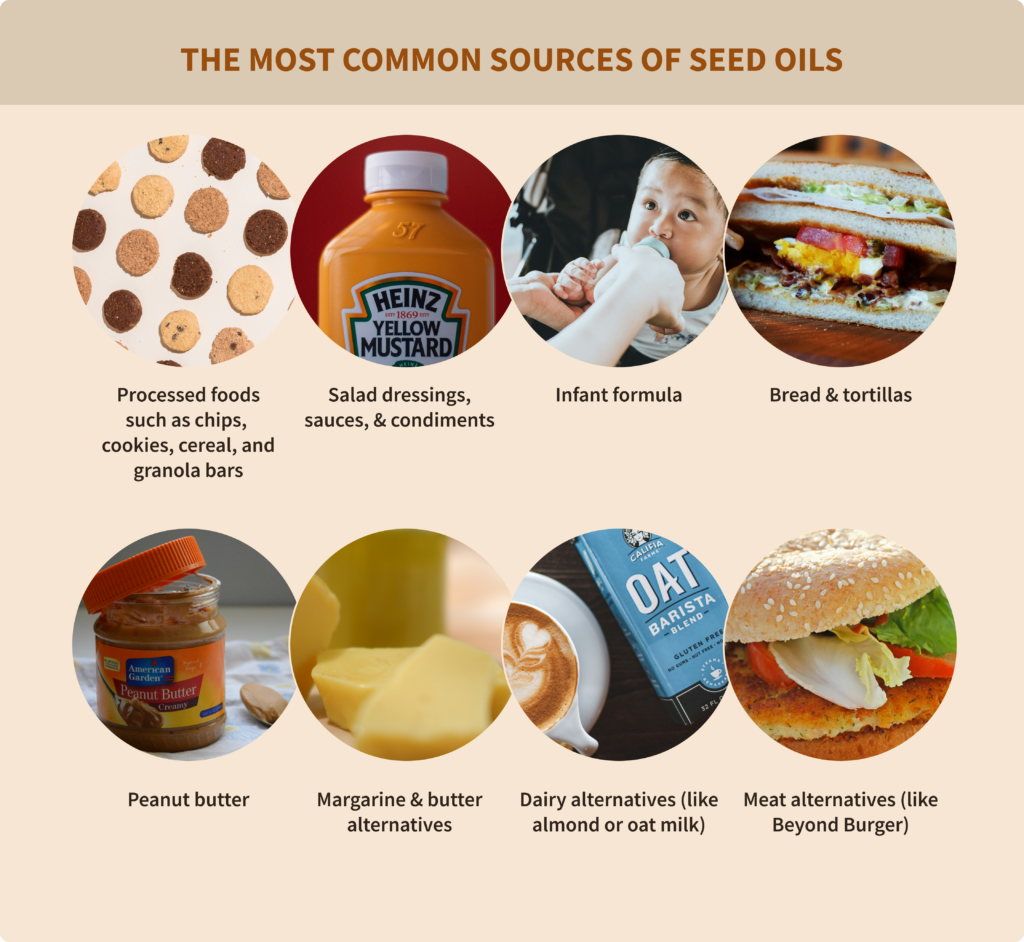
Now, let’s dive into a few of our most frequently asked questions about avoiding seed oils.
Is Olive Oil a Seed Oil? Is Avocado Oil a Seed Oil?
Olive and avocado oils are not seed oils; they come from fruit and are less processed. They contain significantly lower amounts of linoleic acid (about 10% each).
Caution: Be mindful of sourcing. The olive oil and avocado oil markets are largely unregulated, with studies showing that more than 75% of store brands labeled “olive oil” may contain soybean, canola, or other oils.
Tip: If you choose olive oil, opt for a cold-pressed, extra virgin variety stored in a dark glass bottle for optimal freshness.
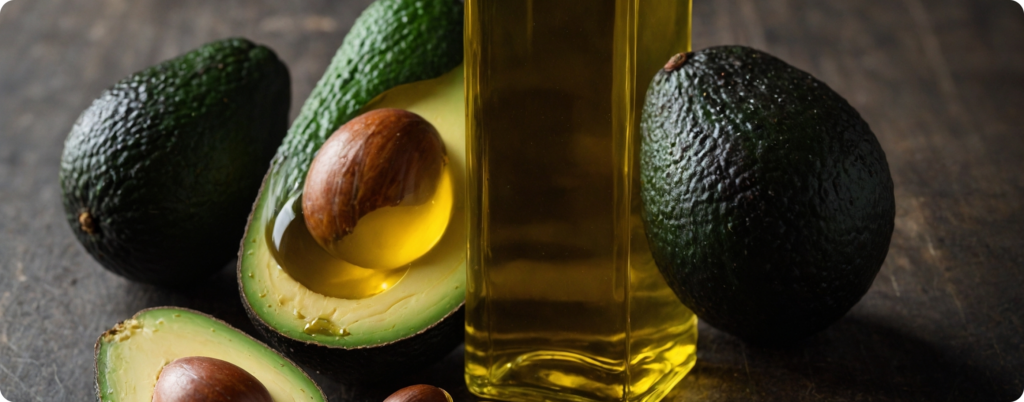
What About Palm Oil?
Palm oil is not a seed oil; it is sourced from the fruit of the palm tree and contains about 10% linoleic acid.
Caution: Refined palm oil can be tricky since the refining process isn’t standardized, and some factories may produce harmful toxins. (8)
Tip: It’s best to avoid it if you can, but if you don’t have another option, it’s still better than seed oils.
Is Coconut Oil a Seed Oil?
Coconut oil is not a seed oil. It only contains about 1-2% linoleic acid and is composed primarily of saturated fats, particularly medium-chain triglycerides (MCTs), making it stable at high temperatures and supportive of metabolic health (9).
Caution: While coconut oil contains small amounts of the plant compound salicylates, it is usually well-tolerated by most people. However, very sensitive individuals should be mindful when trying.
Tip: If you choose to use coconut oil, opt for raw, unrefined options that retain more nutrients.
What about Fried Foods?
Avoiding foods fried in seed oils is a great start, but fried foods aren’t necessarily off-limits!
When frying or cooking at high temperatures, choosing saturated fats with high smoke points is essential. Once oils reach their smoke point, they break down, forming harmful compounds that negatively affect both health (and flavor!) (10).
Here’s a list of healthy fats ranked from highest to lowest smoke point:
- Ghee: 450°F
- Tallow: 400°F
- Avocado Oil (Unrefined): 375–400°F
- Olive Oil (Extra Virgin): 325–375°F
- Coconut Oil (Unrefined): 350°F
- Butter: 300°F
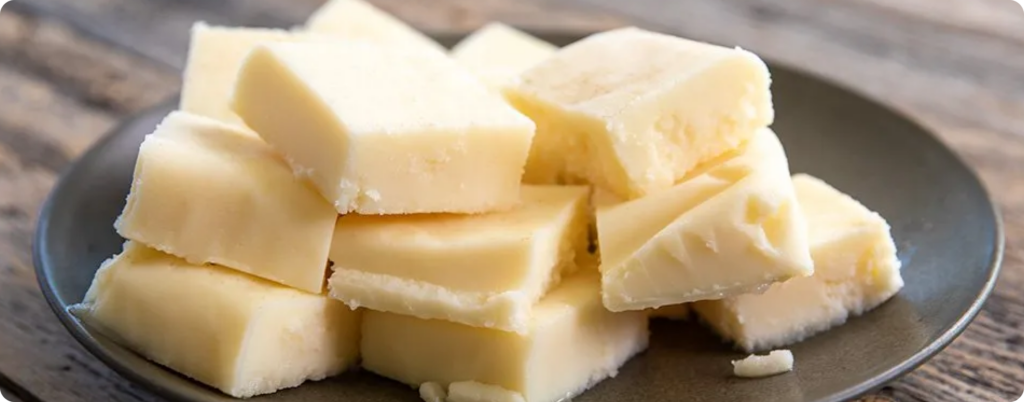
Next time you want to fry plantains or sweet potatoes, use ghee or tallow for a healthy, stable cooking option.
The Best Fats for Optimal Health
We believe that high-quality animal fats, like butter and tallow (rendered beef fat), are among the most beneficial fats for optimal health. Unlike seed oils, animal fats offer a balanced fatty acid profile that supports metabolic health, satiety, cognitive performance, hormone balance, and more.
Animal fats contain only about 1-2% linoleic acid and are rich in stable saturated and monounsaturated fats, which are less prone to oxidation. They also contain stearic acid—a fatty acid found in suet (the fat around the kidneys) and in our Firestarter supplement—which signals fat cells to shrink (11).

Download the full animal-based diet food list PDF for a printable animal-based grocery list and other resources to help you reach your goals.
The Bottom Line
The Western diet now contains far more harmful seed oils than ever, a shift that coincides with the rise in chronic health conditions. Eliminating seed oils is a crucial step toward optimal well-being!
You can better support your metabolic, heart, and immune health by choosing nutrient-dense animal fats rich in saturated fats. Small changes—like reading labels and choosing unprocessed foods—help you to protect your family’s health. Each step to reduce seed oils is a step toward radical health.
Subscribe to future articles like this: